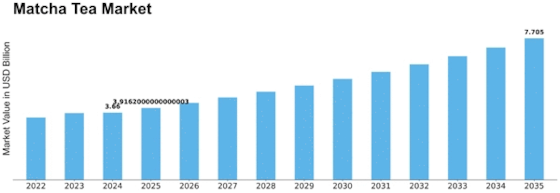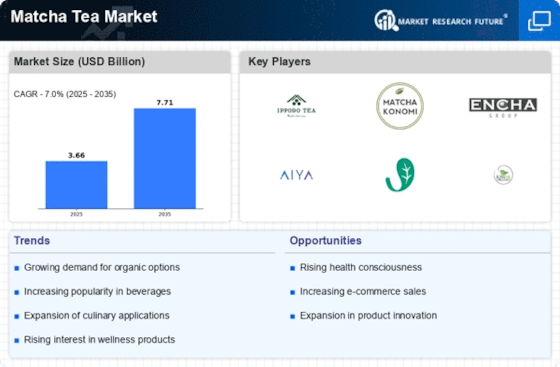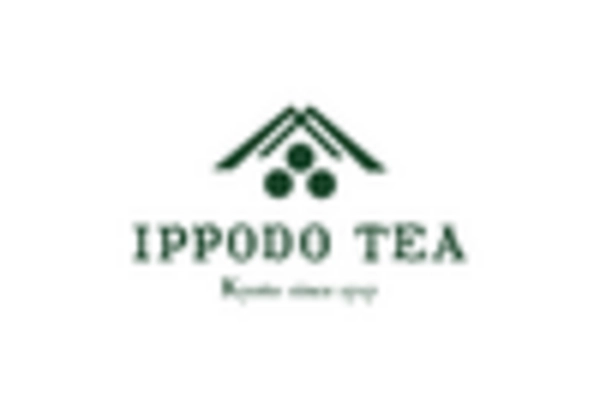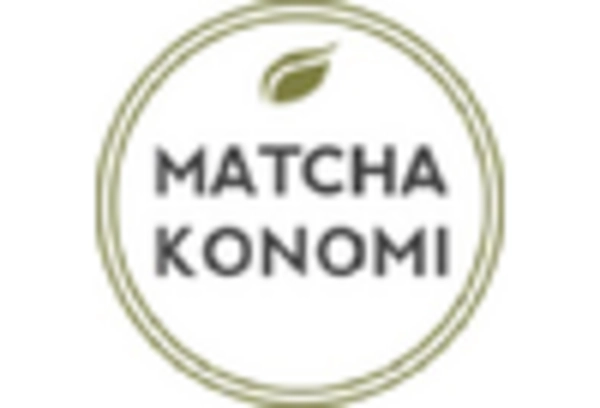Matcha Tea Size
Matcha Tea Market Growth Projections and Opportunities
The Matcha Tea Market is affected by a lot of market factors that determine how it works. Health and wellness have attracted consumer interest, with matcha tea becoming more popular due to its known health benefits. It is well known for its abundant antioxidants and potential positive effects on the health of the body. Another key influence of the Matcha Tea Market is economic factors. The cost of production of matcha tea is influenced by fluctuations in currency exchange rates, raw material prices, and trade policies, which affect the pricing strategies manufacturers adopt. Additionally, income levels and economic stability generally determine what consumers want and can meet through the acquisition of exclusive matcha tea products. Furthermore, investments in novel formulations for matcha tea and novel production procedures are equally dependent on changes in the economy at large. Technological developments in the processing and manufacture of tea determine the market forces for the Matcha Tea Market as a whole. Ongoing research leads to improved cultivation practices, harvesting techniques, and processing technologies to ensure consistent quality controls of matcha tea's output. Consumers are influential in shaping the Matcha Tea Market. As people become more conscious about their well-being, there is an increasing demand for natural drinks with health functions; thus, there has been a growing popularity for naturally healthy beverages like matcha, which are valued among consumers because they contain lots of nutrients that are beneficial to human bodies who prefer such premium and authentic products with various health features along with unique flavor profiles but based on sustainable sourcing criteria also exist within food industry thereby driving innovations depending upon ingredient like this very one seen virtually everywhere hence creating great taste profile ranging from ice creams up to snacks. Regulatory aspects greatly shape the direction taken by participants operating within the Matcha Tea Market structure due to the high standards set governing food production labeling and marketing globally. Just like any other product, green tea requires compliance mechanisms involving some common areas, especially those where macho leaves are used to grow and should not be genetically modified. Matcha tea's market forces depend on globalization and international trade. Also, the global market for matcha has necessitated the exchange of raw materials, technologies, and finished goods across borders. Players in the market and product differentiation are examples of competitive factors affecting the Matcha Tea Market. Well-established brands that have built their reputation with high-quality matcha products have more access to different consumers than others competing alongside them. These steps ensure that clients get unique taste profiles associated with matcha-infused foods or beverage products, thereby ensuring stiff competition. Moreover, brands are created by marketing strategies, which also help establish brand loyalty due to the cultural and historical significance tied to this type of tea.




















Leave a Comment